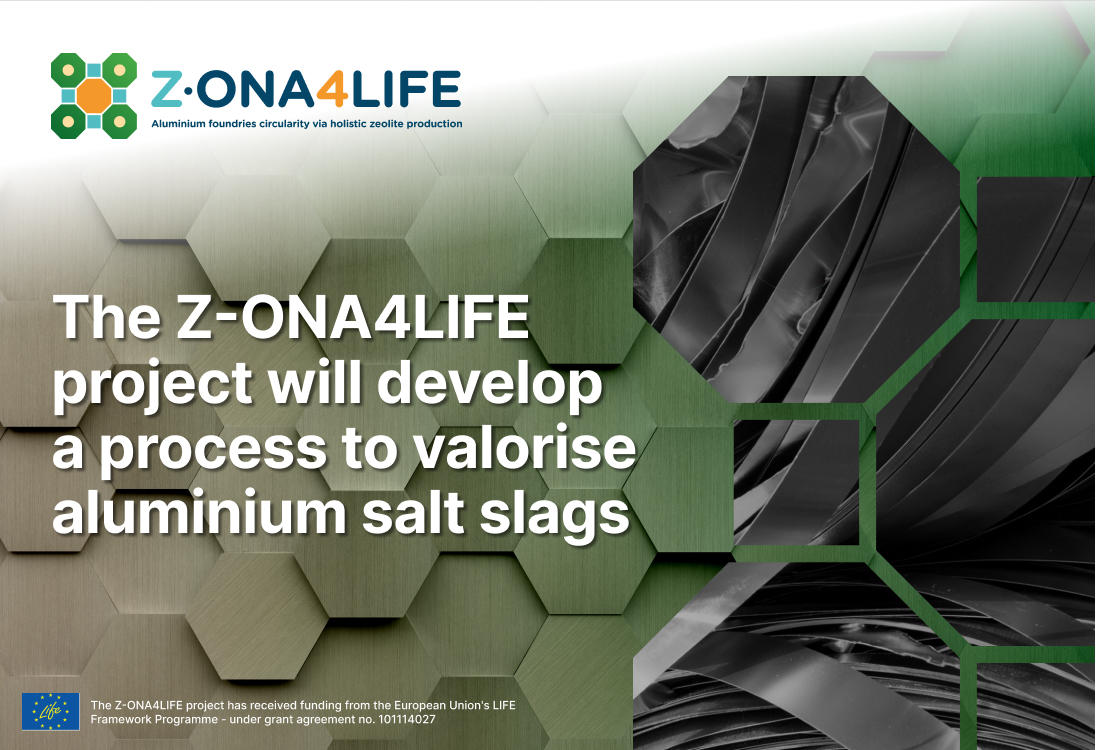
Based on a circular economy model, the project aims at valorising hazardous waste by transforming it into zeolites, a high-value material for other industrial sectors.
Aluminium as a Critical Raw Material
Aluminium is one of the most recycled metals, crucial for sectors like transportation, construction, packaging, and renewable energy technologies due to its unique combination of physicochemical and technological characteristics. Its application in these sectors explains the expected growth of over 50% in aluminium demand by 2050, and that's why aluminium is included in the European Raw Materials Alliance's critical raw materials list.
Recycled aluminium represents 36% of the European supply of this metal, and by the mid-century, an estimated 8.6 million tons will be recycled annually. However, the circularity of the aluminium industry faces unresolved issues. In the secondary aluminium manufacturing process, saline slag is generated as the main waste. In Europe, one million tons of saline slag are produced annually, and due to its chemical composition, it is classified as hazardous waste (European Waste Catalogue, EWC). Improper management of saline slag causes serious effects on living beings and the environment. The high generation of salt slag and its potential risk emphasises the importance of developing innovative, efficient, and sustainable valorisation processes globally.
Z-ONA4LIFE's Contribution to the Circularity of the Secondary Aluminium Industry
In this context, the Z-ONA4LIFE project (Aluminium Foundries Circularity via Holistic Zeolite Production for Effluents Depuration), initiated in September 2023 and funded by the EU's LIFE Programme (LIFE22-ENV-ES-Z-ONA4LIFE), aims to demonstrate at a pilot scale that synthetic zeolite manufacturing is a technically and economically viable technology for valorising aluminium saline slag. The project aspires to develop an almost "zero waste" process, with the recovery of different by-products. Finally, within the Circular Economy framework, the obtained zeolites are going to be applied for purifying gases from the metallurgical industry and wastewater streams such as leachates, permeates, livestock, and mining effluents.
Read more